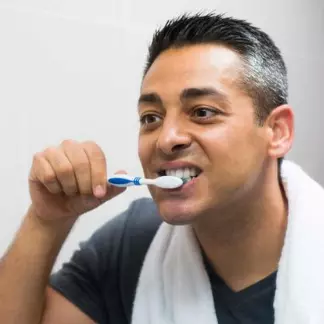Saliva, that transparent, watery liquid in our mouths is also an overlooked worker that contributes in a big way to our oral health.
Saliva Saves Your Mouth
Think of saliva as a climate-control system, powerful food dissolver and all-around digestive aid. Saliva contains powerful compounds that dissolve food as you eat and ensures that food is easily digested.
Saliva Prevents Dry Mouth
As we age, we also produce less saliva. This is called dry mouth, or, in technical terms, xerostomia. Some dry-mouth symptoms can include the uncomfortable feeling where your tongue feels swollen, it’s tough to swallow and you feel like you’re forcibly pushing spit down your throat.

More than just a nuisance, dry mouth is an open invitation to germs, and bacteria flourish when saliva is scarce. This is why offensive breath often accompanies dry mouth, and why it increases the risk of gum disease, cavities and tooth decay.
While it’s more typical when we’re older, dry mouth can also be caused by certain medications, chronic conditions like diabetes, stress, smoking or even dehydration.
Keeping saliva flowing is an essential part of keeping your gums and teeth healthy. When your mouth is feeling dry, you can quickly produce saliva by chewing sugarless gum, eating something or drinking water; and, if taking any medications where dry mouth is a side effect, consult your doctor about ways to lessen its effects or possibly switching prescriptions.
Saliva Protects Gums from Bacteria
Saliva’s tooth-fortifying, germ-minimizing proteins and minerals lower the risk of tooth decay and gum disease. It also combats bad breath by keeping away bacteria.
Saliva Secures Dentures
Aging is not without its challenges. But there’s one less challenge, thanks to your mouth. Saliva keeps false teeth nestled securely in place, so we don’t have to worry as much about denture-related mishaps as we age.




